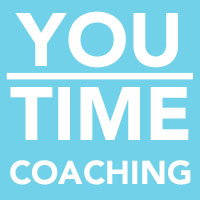The “Self-Help” field is a multi-billion dollar a year industry. By the figures alone, most people are consistently trying to improve themselves, experience change, and accomplish goals.
If you skipped down to this before watching the clip, don’t try taking a short-cut (that may say something about how you also approach your own personal and professional change). Go back and watch it.
Okay, so you have watched the clip and I want to now provide you with what I believe are 3 of the most important researched and proven to work strategies that will be vital to any self-change.
Strategy 1:
“Nobody wants to achieve the negative”
Imagine setting a goal, such as,
“I want to stop procrastinating”
“I want to not overeat”
“I want to stop being attracted to jerks”
“I don’t want to work a miserable job”
Does this sound all too familiar?
A huge number of individuals fall short in a fundamental piece to goal setting, which is, DO NOT SET NEGATIVE GOALS. Nobody wants to achieve a negative goal or move forward with it.
Almost sounds conflicting…”I am going to achieve and make progress with the negative”
When setting your goal, make sure to set it in a “positive-frame” rather than a “negative frame”. I will list some examples.
“I will stop procrastinating” (negative frame)
“i will be more pro-active and assertive” (positive frame)
“I don’t want to overeat” (negative frame)
“I will be more mindful and conscious regarding my meals” (positive frame)
Moving towards something positive and something “gained” has a far more positive impact then trying to “avoid the negative” or “delete” something out of your life. The “positive frame” will help with your mental and physical endurance while pursuing the goal!
Strategy 2:
“Nobody wants to be alone”
Sure we all want to think that we can make changes, reach goals, and live amazing lives all by ourselves. As much as this sounds nice and empowering, research shows that it is absolutely necessary to have a support team along the way.
Your social support team will not only help you progress with your goals, but is actually a huge factor in an individuals happiness!
This is what you need to do.
- Make a list of specific ways you need support in achieving your change.
- Number the specific ways so you know exactly how many people you need on your “team”.
- Start fielding a team by contacting people you know and specifically asking for their help in the way that you need it. (remember that some may not be comfortable, knowledgeable, or willing to help out for many reasons. It is important you are clear with them about what you are trying to accomplish and ask them if they can support you in that way)
- Keep your team updated throughout the process and stay connected! (communicate with them if you need check ins, help with accountability…etc)
- There are different types of support, so different people should be included as each person offers something new.
- Some people aren’t able to provide the support you need, so be clear with them about your needs and respect if they aren’t able to help out.
- You are not looking for friends and family to coach you. Many people would like to add their “5 cents” to the conversation. This is not the support you are looking for. That support comes from a trained and experienced Life Coach.
